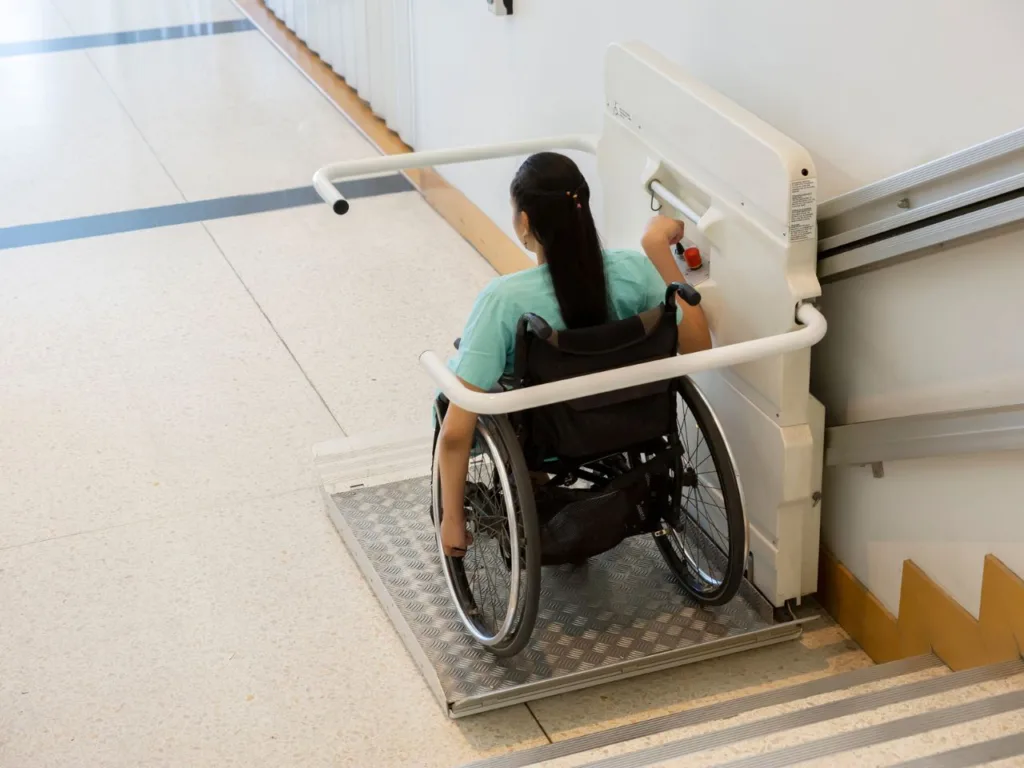Updated on November 7, 2024

People have unique emotional, mental and behavioural needs and are constantly seeking ways to meet them and improve their quality of life.
They may also be struggling with behavioural problems, developmental or intellectual disabilities, emotional disorders and even learning disabilities.
In helping these people, certain experts step in with strategies that meet these emotional needs, reduce the occurrence of negative behaviours, and correct them.
Here, we examine the responsibilities, types, skills and requirements of Behaviour Support Practitioners.
Who is a Behavioural Support Practitioner?
A Behaviour Support Practitioner is a professional who provides behaviour support.
This entails developing constructive and individualized treatment plans and techniques that assist people in managing and improving difficult or problematic behaviours usually concerning developmental, mental health or disability issues.
Behaviour Support Practitioners operate within frameworks such as the National Disability Insurance Scheme (NDIS).
Their roles centre on developing and executing person-centred behaviour support strategies that minimize the application of restrictive practices.
This means they ascertain the underlying causes of particular behaviours and carry out functional behaviour assessments such as interviews, observations, and record reviews.
They create personalized behaviour support plans (BSPs) to manage and minimize problematic behaviours while encouraging positive ones.
Then they monitor how well the interventions are working and adjust the behaviour support plan as necessary.
Types of Behaviour Support Practitioners
1. Age and disability support practitioners
These are behavioural support practitioners who evaluate disabled or elderly individuals and help them create and carry out personalized care plans that offer emotional support and counselling.
2. Autism Support Practitioners
These professionals help those with autism to live better lives by facilitating their social interactions and lessening the likelihood of unfavourable reactions. They also assist them in learning social and coping mechanisms as well as strategies for handling sensory issues.
3. School Support Practitioners
Experts in school behaviour support help children behave better by collaborating closely with parents, teachers and other carers to develop specific plans and tactics needed in managing certain behaviours in school.
With these classifications of Behavioural Support Practitioners, it becomes easier to channel the right therapy or treatment to specific behavioural challenges experienced by individuals.
Where are Behaviour Support Practitioners needed?
1. Educational Institutions
In schools, Behaviour Support Practitioners assist students who struggle with certain behaviours or emotions, such as those with learning challenges, ADHD or autism, to help them participate in class and learn better.
2. Mental Health Clinics and Hospitals
This includes giving behaviour management techniques to patients with mental health issues in psychiatric hospitals, rehabilitation centres, and outpatient mental health services.
3. Residential and Aged Care Facilities
This involves supporting elderly individuals, particularly those with dementia or Alzheimer’s disease, who may display aggression, confusion, or wandering behaviour.
4. Community-Based Initiatives
This covers community health centres, social work services, and vocational rehabilitation programs. They help people with behavioural issues who could have trouble finding work, integrating into society, or maintaining their independence.
5. Home Environments
Behaviour Support Practitioners assist families and carers in handling difficult behaviours in people who reside at home, such as senior family members suffering from dementia, persons with brain impairments, or children with autism.
Duties and Responsibilities of a Behaviour Support Practitioner
The position of a Behaviour Support Practitioner requires a thorough understanding of behavioural theories and the capacity to put these theories to use in practical settings. With constant reference to the NDIS framework, practitioners create customized plans that include collaborative problem-solving models, trauma-informed care, positive behaviour support, and more.
Here are some of the duties of Behaviour Support Practitioners
1. Observation and Evaluation of Individual Behaviour
This involves collecting data about a patient’s development via evaluations, interviews, and observations. This is needed to guarantee effectiveness, track each person’s development and make necessary adjustments to intervention tactics.
2. Encouraging Improvement in Behaviour
To encourage positive behaviour change, behaviour support practitioners are adept at identifying problematic behaviours and putting evidence-based treatments into practice. They assist people in developing adaptive behaviours and decreasing problematic ones by determining the underlying reasons for behaviours and putting effective solutions into practice.
3. Collaboration with Other Professionals
To guarantee the effectiveness of behaviour support, practitioners collaborate with educators, medical professionals, families, and other stakeholders.
4. Creating and Implementing Behavioural Treatment Plans
These strategies consider the needs of the patients and ensure that they are responsive to patients’ needs. They also ensure that support practices employed comply with laid down regulations. The behaviour interventions specified in the support plan are carried out by practitioners. These treatments include teaching substitute skills, changing the environment to encourage desired actions, and using reinforcement techniques.
5. Supplying Support, Direction and Instruction During Treatment
This involves working hand in hand with patients, their parents, teachers and allied health providers to provide wholesome support. To ensure consistency and efficacy across settings, they provide training and assistance to educators, carers and other stakeholders adopting behaviour support programs.
By using these all-encompassing strategies, Behaviour Support Practitioners can guarantee that each person’s particular need is satisfied, creating an atmosphere where they can flourish.
Skills required to become a Behaviour Support Practitioner
1. Behaviour Analysis
Understanding the techniques and principles of behaviour analysis is a vital skill needed to carry out evaluations and create efficient plans for behaviour support.
2. Listening Skills
When patients speak, you should listen actively and interact with them. Smiling, nodding, and maintaining eye contact are ways to listen actively. Helping someone and appreciating their viewpoint are made simpler by having active listening abilities.
3. Empathetic Qualities
When working with people who have behavioural issues, it is essential to adopt an empathetic and patient approach, as this fosters a deeper degree of connection between those involved and even their families
4. Problem-Solving Skills
This skill is needed by Behaviour Support Practitioners to identify the fundamental causes of challenging behaviours and devise innovative solutions that will help address the issues.
5. Critical Thinking Skills
As a behaviour support professional, you need to be able to think critically to make sound decisions. Critical thinking becomes beneficial when developing unique care plans and alternate treatment options for clients.
6. Competent and Effective Communicative Abilities
Communicating effectively is an important tool needed to collaborate with interdisciplinary teams and training stakeholders.
How do you become a Behaviour Support Practitioner?
Below are some steps to follow to be identified as a Behaviour Support Practitioner:
1. Acquire a bachelor’s degree in similar fields
A strong educational background is necessary before you embark on your journey. The initial step towards the position is to pursue a degree in a suitable discipline. Social science, social work, behavioural science, special education and psychological science are a few degree programs that might help you launch your profession. The courses give you the substantial expertise needed to help individuals with behavioural issues.
2. Register with the NDIS
To become a registered Behaviour Support Practitioner, register with the National Disability Insurance Scheme. This entails a procedure for evaluating your suitability for the position. Undergo necessary checks and acquire licenses required by the NDIS.
3. Gather experience in the field
After graduating, take entry-level jobs to obtain practical experience in the field. It is important to get hands-on experience working with individuals with disabilities, behavioural disorders or mental health conditions through field placements internships or volunteering. You can also work in counselling and disability support jobs or shadow a behaviour support practitioner.
4. Explore career opportunities and build skills
Earn a graduate diploma in psychology or another postgraduate degree to expand your career and skill set. Concentrate on taking lessons in your master’s program that correspond with the competencies of a behaviour support practitioner. It is essential to cover subjects including behavioural evaluation, intervention techniques, and ethical issues in behavioural therapy. In addition to studying, attending expert workshops and seminars improves your comprehension and keeps you up-to-date on the most recent behavioural support techniques.
Conclusion
By becoming a Behaviour Support Practitioner, you play an important role in assisting people with special behavioural or emotional needs to enhance their quality of life and manage their interactions with others. This implies that those with unique behavioural or emotional requirements benefit greatly from the help of Behaviour Support Practitioners.
MORE FROM CENTRE DISABILITY SUPPORT
What Does A Support Coordinator Do?
WHY DO PEOPLE CHOOSE TO WORK WITH DISABILITY SUPPORT?
28 JOBS FOR PEOPLE WITH DISABILITIES



